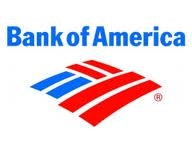
A good example is Bank of America. A rise in interest rates could be a huge boon to the company’s earnings, as interest rates on loans tend to adjust upward faster than interest credited to their depositors. Today, Bank of America’s NIM is 2.34%, versus an average of 2.96% since 2000. Just a return to the long-term average would have the effect of increasing the bank’s earnings in 2012 by about $7 billion (all other things being equal) and would have increased the operating earnings per share from $0.79 to $1.39.

Earlier this week, the bank was hit with its latest lawsuit. The U.S. government filed two civil lawsuits against the bank for “investor fraud” related to sales of residential mortgage-backed securities.
In other news, the banking giant managed to beat 2Q EPS expectations. Earnings came in at $0.32, well above the $0.19 for the same quarter last year. The EPS growth was driven by reduced non-interest expenses.
At the end of 2Q, non-performing loans were down to 2.2%, compared to approximately 2.7% for 2Q 2012. What’s more is that net charge-offs were down to $2.1 billion from $3.6 billion a year earlier. Meanwhile, the company grew deposits 5% year-over-year.
Back in 2011, the bank started Project New BAC to boost earnings and reduce costs. The company saved $900 million in 2012 and expects to save $1.5 billion per quarter by the end of 2013. All in all, the initiative is expected to yield an annualized $8 billion in savings by mid 2015.
In love with tech

Consider Microsoft. The company currently has 9.5% free cash flow yield despite being the largest software company in the world with a pristine balance sheet, generating $3.27 per share in free cash flow. Though the company faces challenges, investors overlook the company’s undeniable strength in its enterprise software franchise which contributes 70% of earnings, and its responsiveness and determination to protect its consumer franchise. Even assuming low growth, we see the valuation as compellingly cheap.
At the end of last quarter, Microsoft Corporation (NASDAQ:MSFT) had some $77 billion in cash, up $2.5 billion during the quarter. With all of the concerns surrounding the decline in the PC business, Microsoft is turning to enterprise. British Airways is just the latest company to adapt Microsoft’s cloud offering, 360 Office.
Also, other key markets include Microsoft Corporation (NASDAQ:MSFT)’s foray into mobile and the upcoming launch of next-gen gaming console, Xbox One.
The low-end server market is growing twice as fast as desktops and Microsoft is gaining share. Linux is gaining share. The share losers are Sun, International Business Machines Corp. (NYSE:IBM) and HP.
The article Billionarie Pzena is Long on Tech and Financials originally appeared on Fool.com and is written by Marshall Hargrave.
Marshall Hargrave has no position in any stocks mentioned. The Motley Fool recommends Bank of America Corp (NYSE:BAC). The Motley Fool owns shares of Bank of America and Microsoft Corporation (NASDAQ:MSFT). Marshall is a member of The Motley Fool Blog Network — entries represent the personal opinion of the blogger and are not formally edited.
Copyright © 1995 – 2013 The Motley Fool, LLC. All rights reserved. The Motley Fool has a disclosure policy.




